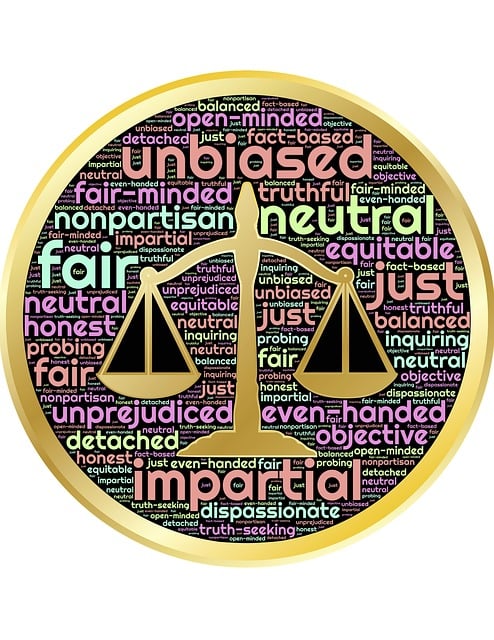The securities industry faces complex regulations, with Navigating Complex Securities Litigation Regulations as a top priority to maintain market integrity. Key players like law firms and financial institutions must understand evolving laws from bodies like the SEC and FINRA, covering areas such as disclosure, trading, and anti-money laundering. Effective compliance involves staying informed, implementing robust programs, and cultivating ethical conduct to avoid indictment in high-stakes cases where regulatory interpretation plays a crucial role in determining guilt or innocence.
In the dynamic realm of RF securities industry regulation, understanding the intricate web of laws and guidelines is paramount. This article delves into navigating complex securities litigation regulations, exploring key legal frameworks and regulatory bodies’ roles in fostering fair markets. We dissect common challenges, controversial issues, and effective strategies for compliance, providing essential insights for professionals aiming to mitigate legal risks in this evolving landscape.
- Understanding the Complex Landscape of Securities Regulation
- Navigating Litigation: Key Legal Frameworks and Guidelines
- The Role of Regulatory Bodies in Ensuring Fair Markets
- Common Challenges and Controversial Issues in RF Securities Litigation
- Strategies for Compliance and Mitigating Legal Risks
Understanding the Complex Landscape of Securities Regulation

The securities industry is governed by a complex web of regulations designed to protect investors, maintain market integrity, and prevent fraudulent activities. Navigating Complex Securities Litigation Regulations requires a deep understanding of this intricate landscape. This involves staying abreast of evolving laws, guidelines, and enforcement actions across various regulatory bodies such as the SEC (Securities and Exchange Commission), FINRA (Financial Industry Regulatory Authority), and state securities divisions.
Each jurisdiction has its own set of rules regarding disclosure requirements, trading practices, insider trading, anti-money laundering, and more. Furthermore, the process of investigating and enforcing these regulations can span all stages, from initial complaints and fact-finding to formal inquiries, negotiations, and, in severe cases, jury trials. A key aspect for firms is to avoid indictment by proactively adhering to regulations, implementing robust compliance programs, and fostering a culture of ethical conduct to mitigate risks throughout the investigative and enforcement process.
Navigating Litigation: Key Legal Frameworks and Guidelines

Navigating complex securities litigation regulations is a critical aspect of the RF Securities Industry. As high-stakes cases become increasingly common, understanding the key legal frameworks and guidelines becomes paramount for all involved parties. These regulations not only ensure fairness in the market but also provide a safety net against potential abuses.
The legal landscape in this domain involves intricate rules focused on avoiding indictment and securing a complete dismissal of all charges. Regulatory bodies play a pivotal role in interpreting and enforcing these rules, aiming to protect investors without unduly burdening legitimate businesses. This balancing act requires meticulous compliance with evolving guidelines, demanding constant vigilance from law firms, financial institutions, and regulatory agencies alike.
The Role of Regulatory Bodies in Ensuring Fair Markets

Regulatory bodies play a pivotal role in the securities industry by establishing and enforcing rules designed to protect investors from fraudulent activities and market abuse. These organizations navigate complex securities litigation regulations, ensuring fair markets for all participants. They act as watchdogs, carefully scrutinizing transactions and financial reporting to detect any signs of wrongdoing.
Through comprehensive oversight, these regulatory bodies implement measures that promote transparency and accountability across the country. Their decisions, including the complete dismissal of all charges against respective businesses, can significantly impact market dynamics. Effective regulation fosters trust in financial markets, encouraging legitimate investment while deterring potential perpetrators from engaging in illicit activities.
Common Challenges and Controversial Issues in RF Securities Litigation

Navigating Complex Securities Litigation Regulations presents unique challenges for all involved parties. High-stakes cases often turn on intricate financial details and legal interpretations, making it crucial to have a deep understanding of both the securities industry and litigation procedures. One significant issue is the complexity of regulatory standards themselves; these can be subject to interpretation and evolve over time, adding layers of difficulty in proving liability or innocence.
Controversial issues frequently arise, particularly when dealing with allegations of fraud or insider trading. Achieving extraordinary results in such cases requires meticulous documentation, robust legal strategies, and a thorough understanding of the regulatory landscape. The goal is often a complete dismissal of all charges, demonstrating not just compliance but also proactive measures to prevent future violations.
Strategies for Compliance and Mitigating Legal Risks

Navigating Complex Securities Litigation Regulations requires a multifaceted approach to compliance. Financial institutions must stay abreast of evolving legislation, internalize robust risk management strategies, and cultivate a culture of ethical conduct. By implementing rigorous due diligence checks, maintaining transparent records, and ensuring employee training on regulatory requirements, firms can significantly mitigate the risks of non-compliance. These proactive measures not only safeguard against white collar and economic crimes but also foster trust within philanthropic and political communities.
One critical aspect in this landscape is understanding how to avoid indictment. Effective strategies involve establishing clear guidelines for ethical behavior, promoting a robust whistle-blowing program, and conducting regular, independent audits. By embracing these practices, securities firms can demonstrate their commitment to regulatory adherence, reducing the likelihood of legal repercussions. Ultimately, prioritizing compliance not only ensures business sustainability but also strengthens the integrity of the financial sector as a whole.
Navigating the complex landscape of securities regulation is essential for ensuring fair and transparent markets. By understanding key legal frameworks, the role of regulatory bodies, and common challenges in RF securities litigation, industry participants can develop effective strategies for compliance and risk mitigation. Adhering to these guidelines fosters a robust and trustworthy financial environment, promoting both investor protection and market stability. In terms of navigating complex securities litigation regulations, ongoing vigilance and adaptation are crucial to keep pace with evolving legal landscapes.






